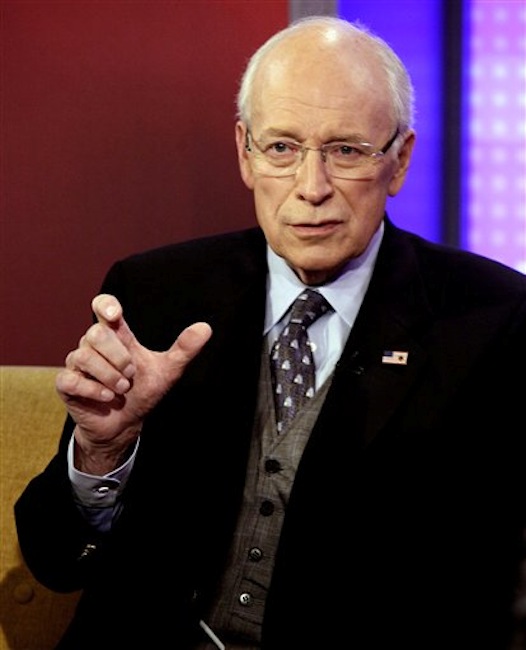CHICAGO — Doctors say it is unlikely that former Vice President Dick Cheney got special treatment when he was given a new heart at age 71 that thousands of younger people also were in line to receive.
Still, his case reopens debate about whether rules should be changed to favor youth over age in giving out scarce organs. As it stands now, time on the waiting list, medical need and where you live determine the odds of scoring a new heart — not how many years you’ll live to make use of it.
“The ethical issues are not that he had a transplant, but who didn’t?” Dr. Eric Topol, a cardiologist at Scripps Health in La Jolla, Calif., wrote on Twitter.
Cheney received the transplant Saturday at Inova Fairfax Hospital in Falls Church, Va., the same place where he received an implanted heart pump that has kept him alive since July 2010. It appears he went on the transplant wait list around that time, 20 months ago.
He had severe congestive heart failure and had suffered five heart attacks over the past 25 years. Cheney has had countless procedures to keep him going — bypasses, artery-opening angioplasty, pacemakers and surgery on his legs. Yet he must have had a healthy liver and kidneys to qualify for a new heart, doctors said.
“We have done several patients hovering around age 70” although that’s about “the upper limit” for a transplant, said Dr. Mariell Jessup, a University of Pennsylvania heart failure specialist and American Heart Association spokeswoman. “The fact he waited such a long time shows he didn’t get any favors.”
More than 3,100 Americans are waiting now for a new heart, and about 330 die each year before one becomes available. When one does, doctors check to see who is a good match and in highest medical need. The heart is offered locally, then regionally and finally nationally until a match is made.
“You can’t leapfrog the system,” said Dr. Allen Taylor, cardiology chief at MedStar Georgetown University Hospital. “It’s a very regimented and fair process and heavily policed.”
Jessup and Taylor spoke Sunday from the American College of Cardiology’s annual conference in Chicago, where Cheney’s treatment was a hot topic.
Patients can get on more than one transplant list if they can afford the medical tests that each center requires to ensure eligibility, and can afford to fly there on short notice if an organ becomes available. For example, the late Apple chief Steve Jobs was on a transplant list in Tennessee and received a new liver at a hospital there in 2009 even though he lived in California.
That’s not done nearly as often with hearts as it is for livers or kidneys, said Dr. Samer Najjar, heart transplant chief at MedStar Washington Hospital Center. Each transplant center decides for itself how old a patient it will accept, he said.
“Most centers wouldn’t put somebody on” at Cheney’s age, said University of Pennsylvania bioethicist Art Caplan, who has testified before many panels on organ sharing issues.
“I’ve been arguing for a long time that the system should pay more attention to age because you’ll get a better return on the gift” because younger people are more likely to live longer with a donor organ, Caplan said.
News reports detail other successful heart transplants in septuagenarians.
In Canada, a man described as a home builder and philanthropist received a heart transplant when he was 79 at the University Hospital in Edmonton, Alberta, Canada. He lived for more than a decade with the organ, dying in 2010 at age 90.
In Texas, a 75-year-old retired veterinarian received a heart last year from a 61-year-old donor, but he had been a marathon runner and was presumably healthier than many of his peers.
Cheney will have to take daily medicines to prevent rejection of his new heart and go through rehabilitation to walk and return to normal living. He was former President George W. Bush’s vice president for eight years, from 2001 until 2009.
Send questions/comments to the editors.


